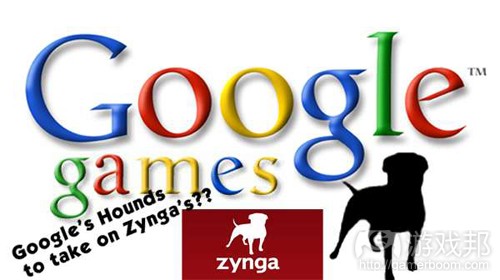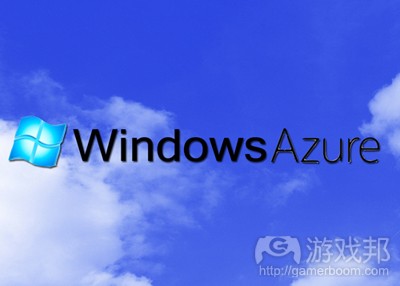每日观察:关注谷歌曾投资Zynga等消息(7.20)
1)Zynga最初向SEC提交的S-1文件显示,Zynga过去在三轮融资中总共筹得8.45亿美元资金,但却并没有公开投资者名称。该公司最近向SEC另外提交的619页文件则表明,Goolge就是Zynga投资者之一(游戏邦注:有人认为Zynga迟迟不肯公开这一信息是因为谷歌是Facebook竞争对手,所以他们打算隐瞒这一情况)。
目前尚不知谷歌投入的具体数额是多少,但TechCrunch早期的报道指出,谷歌投资金额应该介于1亿至2亿美元之间。而All Thingsd报道也称这笔资金实际数额有可能接近1.8亿美,谷歌如此大手笔有可能意在通过与Zynga合作,让后者面向Google+平台开发社交游戏。
除此之外,Peter Thiel(PayPal联合创始人及天使投资者)、软银、DAG Ventures Limited、Digital Sky Technologies Limited、Reid Hoffman、Paul Martino、Gary Leff、 Avalon Ventures VIII, LP等多家公司也是Zynga主要投资者。
文件资料还显示,Facebook与Zynga之间还有一项广告营收分成协议,Zynga可从Facebook在其游戏中投放的广告获得相应收益,另外Facebook需帮助协议条款所包含的Zynga游戏(游戏邦注:包括PetVille、Cafe World、FarmVille、Treasure Isle、FishVille、YoVille、Mafia Wars、Live Poker、CityVille和Empires & Allies)实现其发展目标。
2)微软日前宣布将于本周发布一款新的Windows Azure工具包,为社交游戏开发商提供创建、发布、支持游戏项目等服务。Windows Azure团队技术成员Nate Totten表示,微软准备发布一个开源代码,方便开发商创建含有身份验证、玩家成就、积分排行榜、应用内置付费系统、盈利渠道等功能的社交游戏。Windows Azure是一个基于HTML5的平台,支持开发商跨平台开发游戏。
微软还同时发布了一款简单游戏《Tankster》,向开发者示范如果使用这项工作创建具有轻度交互性的2D游戏。Windows Azure主要锁定小型开发商,帮助他们节省处理基于服务器代码的时间,其竞争对手包括亚马逊网络服务平台。
3)Optim.al日前将《CityVille》的高价值玩家(更具参与度,常通过该游戏发布消息的用户)与“赞”过《CityVille》的用户进行了对比,结果发现前者对自己所玩的社交游戏更为专一,在其他游戏中的发贴概率相对较低,而后者“赞”其他社交游戏或应用的概率则更高。
在高价值玩家群体中,有16.9%也曾在《FarmVille》中发布消息,有16.5%还曾在《Empires & Allies》中发贴;在“赞”过《CityVille》的用户中,有44.7%曾赞过《FarmVille》,有34.2%赞过有关购物的内容。
由此中见,用户很容易就会表达出自己对某些具有相似性的品牌、应用或页面的好感,但真正参与其中的用户才却更能集中注意力,不会轻易因其他潜在竞争性产品而转移视线。
4)《myFarm》开发商SocialApps日前起诉Zynga侵犯其版权,称后者游戏《FarmVille》盗用了《myFarm》的源代码。据SocialApps所称,Zynga曾作出补偿等承诺以骗取SocialApps的信任,得到该游戏源代码后却并没有兑现诺言。该公司还表示,《FrontierVille》、《CityVille》和《FishVille》等游戏也可能挪用了《myFarm》的源代码。
《myFarm》于2008年在Facebook平台发布,而《FarmVille》则是在2009年6月面世,但SocialApps之前却并没有为《myFarm》或其源代码注册版权,直到今年6月14日才付诸行动(三天后才起诉了Zynga)。
SocialApps称公司为此蒙受了10万美元以上的损失,要求Zynga承担法定和惩罚性赔偿、律师费用,并从《FarmVille》收益中抽出50万美元作为补偿费用。
5)2011年美国消费者电子商务满意指数调查报告显示,不少用户认为Facebook并不是个令人满意的社交平台(游戏邦注:该调查有7万名受访者)。仅有66%受访者自称对Faceboo感到满意(去年的同一比例是64%),而维基百科的用户满意度则是78%,谷歌、YouTube和Fox News的用户满意度也相对乐观。MySpace满意度已明显下降,其他同样表现不济的网站还包括AOL、赫芬顿邮报和纽约时报等网站。
6)EA Sports全球开发高级副总裁Andrew Wilson在日前的英国开发大会上发言表示,假如未来的游戏必须具备社交元素,那么它们必定离不开收集、建造、玩耍和分享这几个核心机制。
他称市场正在快速发生巨变,游戏玩家也在不断变化,音乐和电影领域也出现了同样的情况,如果不顺时而变就难免陷入经营困境。用户的消费行为已发生转变,无论是哪种平台的开发商都应为游戏创建一个社交生态系统,以支持玩家进行互动。他认为只为掌握了跨平台开发技术,并且能为用户提供统一游戏体验的公司才能把握未来并获得成功。
7)Facebook游戏合作关系主管Sean Ryan在日前的Casual Connect大会上表示,Facebook游戏目前约有2亿的MAU(Facebook月活跃用户总数达7.5亿),其中有50%玩家会每日回访Facebook;Facebook平台目前有375款游戏的MAU超过10万,并聚集了来自190个国家的开发商。
他称Facebook并非由少数寡头主宰的应用平台,而是一个人人皆可参与的市场。他强调人们不可因Zynga游戏而忽略了其他题材的游戏,例如“寻物解谜”游戏,他认为这个市场可容纳50甚至100款这种类型的游戏。
Ryan称开发商最好不要亦步亦趋地追随大型公司的步伐,而应推出博彩类游戏、“中等硬核”游戏(结合休闲及硬核风格)、狩猎游戏、钓鱼游戏、信徒游戏、角色扮演游戏、格斗游戏、爱情游戏、第一人称射击游戏等此类值得关注但目前产量相对较少的作品。(本文为游戏邦/gamerboom.com编译,如需转载请联系:游戏邦)
1)The 3 Most Surprising Takeaways From Zynga’s New SEC Filing
By Nicholas Jackson
Zynga looks lot less healthy than it did three weeks ago, but we don’t know how that will affect its upcoming $1 billion initial public offering
Nearly three weeks after filing its S-1 forms with the Securities and Exchange Commission for an IPO expected to value the social gaming company at somewhere between $10 billion and $20 billion, Zynga dropped an additional 619-page document off with the SEC. The document, filed on Monday afternoon, is about three times longer than the original IPO filing and is packed with all kinds of new and previously undisclosed information. So, what’s in there that they were hoping we might ignore? What’s in there that might have been ready to file way back on July 1 but was conveniently delayed? Here are the three most surprisingly findings so far:
1. Google has invested in the company. When the first SEC filing was made public, All Things D’s Tricia Duryee pointed out that “the social games company has not been entirely transparent about how much capital it has raised — and as a private company, it didn’t have to be.” Near the end of the first S-1, Zynga announced that it had raised a total of $845 million from three official rounds of fundraising … but it didn’t name any of the investors. Because one of those investors is Google, which we can now confirm, you can see why Zynga, which has grown so quickly largely because of its partnership with Facebook — Google’s rival in a war that continues to get hotter by the day now that Google has its own social network — would try to conceal that information.
We still have no idea how much Google invested, but an old TechCrunch story from mid-2010 suggests that the figure is somewhere between $100 million and $200 million — an enormous sum and a large chunk of everything Zynga has been able to raise. Duryee’s sources suggested that the actual figure was close to $180 million and is so large because Zynga could quietly be partnering with Google to build a social games network that runs on Google+.
2. So have many other big names. Other Zynga investors include Peter Thiel, the PayPal co-founder and angel investor who was also an early mover on Facebook; SoftBank Corp.; DAG Ventures Limited; Digital Sky Technologies Limited, the investment firm founded by Yuri Milner that holds pieces of Facebook and Groupon as well; Reid Hoffman; Paul Martino; Gary Leff; Avalon Ventures VIII, LP; and many more.
3. Facebook has exclusivity for all major Zynga titles. While Zynga may be partnering with Google, Facebook still has a guarantee that forces Zynga to require its users to access its biggest titles using a Facebook login. The social games company is allowed to host its games elsewhere on the Web, but it doesn’t make much sense to do so: As long as the agreement is in place, Facebook takes a 30 percent cut of all money raised through the sale of virtual goods. And, when Zynga’s games are hosted on and played through Facebook, the company gets a cut of all revenue brought in by ads served alongside its player. The other benefit for Zynga? As long as the deal stands, Facebook has to help it meet a number of growth targets for all games involved, which includes PetVille, Cafe World, FarmVille, Treasure Isle, FishVille, YoVille, Mafia Wars, Live Poker, CityVille and Empires & Allies.
The most basic takeaway from all of this is that Zynga looks a lot less healthy than it did three weeks ago. But it’s unclear how that might affect the upcoming initial public offering. As long as Facebook can continue to provide the necessary number of monthly unique visitors to satisfy the agreement that is in place, it has a lot of control over the company. It has so much control, Business Insider suggested, “it almost makes Zynga into a Facebook subsidiary.”(source:theatlantic)
2)Microsoft tailors Windows Azure for social game developers
Dean Takahashi
Microsoft said today it is tailoring its Windows Azure cloud development platform for social game developers, making it much easier for them to develop, launch, and support online games.
The company will release a new Windows Azure tool kit for social game developers by the end of the week. The announcement shows that Microsoft wants to win over the allegiance of the developers that are making cutting edge social games that live or die based on the quality of interaction between users and cloud-based data centers.
Nate Totten, technical evangelist for the Windows Azure team said in an interview that Microsoft is releasing source code that makes it easy for developers to create games with built-in features such as authentication, gamer achievements, leaderboards, in-app purchases, monetization and other common requirements for social games. The platform is based on the HTML5 format for making cross-platform games.
“You just deploy it and it runs and it scales up as you add millions of users,” Totten (pictured right) said.
Microsoft also released a simple game, Tankster, that illustrates how to use the tools to create a two-dimensional game with a small amount of interaction. The platform is aimed at small developers who don’t have time to deal with a lot of the server-based code that has to support online games such as Facebook titles. Rival platforms includes Amazon’s web services platform, which offloads the server side of the business so developers can concentrate on their game code.
“If you just want to concentrate on the game and don’t want to deal with hosting or rebuilding your game for a lot of formats, then this is for you,” said David Appel (pictured left), director marketing for Azure. “We’ve got a platform that is cost-effective for startups.”
Some companies that have developed games using Azure include Three Melons, which made a soccer game last year for the world cup. That game reached as many as 5 million users a month. The benefit of using HTML5 is that it can be used to make cross-platform games, but its disadvantage is slow performance and an inability to easily use platform-specific features such as a camera in smartphone games.
Coincidentally, Dave Roberts, chief executive of PopCap, said that the promises of writing a game once and running it anywhere haven’t been fulfilled, even in the age of HTML5. But that’s not stopping companies from making that sales pitch to developers, and Microsoft is one of those delivering that pitch.(source:venturebeat)
3)Most Valuable Zynga Gamers Play Multiple Games
by optimal
How is a “Like” Different from Real Usage Behavior? XA.net conducted an analysis of Zynga users using both public and our own proprietary data sources. We split our analysis into two parts: engaged, high-value users who actively post from Zynga applications, and users who have simple ‘Liked’ Zynga applications. In the graphic above, we show the likelihood of a user posting from or liking an app or page given that such user has posted from or liked Cityville. Note the tendency of Zynga’s audience to divide their attention among multiple Zynga franchises. The contrasting scale of each analysis—stronger similarities in the ‘Like’ column to the right, and lower similarities among the high-value users in the left column—indicates an important dynamic in Facebook object engagement. It is very easy to express affinity for a brand, application, or page, and audiences built by looking simply at such affinity tend show significant overlap. Engaged, high-value users, on the other hand, are more particular about the Facebook objects with which they engage and less likely to dilute their attention among diverse, potentially competitive franchises.
Note that we provide deep, proprietary data and analysis to Fortune 500 brands, agencies and startups alike about their own and their competitors’ audiences. Please contact us if you are interested in pricing out a particular analysis.(source:optim.al)
4)myFarm developer sues Zynga for copyright infringement
By Andrew Webster
First Zynga sued Vostu for copyright infringement. Now myFarm developer SocialApps is suing Zynga for the same. A complaint filed by the California-based developer claims that Zynga went so far as to steal the source code from myFarm for use in its own farming game, FarmVille.
The complaint, posted at Patent Arcade, explains that SocialApps “alleges that its direct competitor Zynga, cajoled it into sharing its source code with promises of compensation and recognition, and then ran once they got the secret.”
myFarm launched on Facebook in November 2008. FarmVille, meanwhile, came to the social network on June 19, 2009. However, SocialApps didn’t register the copyright for myFarm or its source code until June 14 of this year, three days before filing the suit against Zynga.
And that’s not all that’s strange about the timeline. SocialApps also claims that in May 2009, just one month before FarmVille launched, Zynga attempted to purchase the copyright and source code of myFarm:
“The companies entered into a Letter of Agreement for the source code and, SocialApps was under the impression that Zynga would compensate and credit them for any use of myFarm,” reads the complaint, which also “alleges that after Zynga got confidential source code, SocialApps never heard from Zynga again and couldn’t get in touch with them when they tried.”
SocialApps claims that the company has suffered damages greater than $100,000 and “is seeking permanent injunction, statutory and punitive damages, and attorney’s fees,” as well as “profits and gains from FarmVille since these are in excess of $500,000.”
Finally, the suit also claims that the source code may have been used in other Zynga games, including FrontierVille, CityVille, and FishVille.(source:gamezebo)
5)Survey Says: US Consumers Most Unhappy With Facebook
By Marshall Kirkpatrick
The 2011 American Customer Satisfaction Index (ACSI) E-Business Report was published today and the survey of 70,000 US consumers found Facebook to be the least satisfying of the largest social sites on the web. Only 66% of respondents said they were satisfied by Facebook, compared to market leader Wikipedia at 78%. Google, YouTube and Fox News all scored high in the survey as well. MySpace was dropped due to insufficient interest, after scoring the lowest among social sites last year. Low-scoring sites in other categories included AOL, the Huffington Post and the New York Times. Here are the numbers.
With Facebook continuing to show weak consumer satisfaction numbers, the obvious question is what this means for Google Plus. “What we do know is that Google is one of the highest-scoring companies in the ACSI and Facebook is one of the lowest,” said Larry Freed, president and CEO of survey partner ForeSee Results. “An existing dominance of market share like Facebook has is no longer a safety net for a company that is not providing a superior customer experience.”
The survey didn’t put Twitter into its own category, instead lumping together “all other social sites” – a category that declined substantially in consumer satisfaction. Facebook, though in last place in its category, actually climbed year over year from 64% to 66%.(source:readwriteweb)
6)Develop: Creating Social Experiences Crucial To Gaming’s Future Says EA’s Wilson
by Simon Parkin
“Never underestimate the power of identity, and the drive that today’s game players have to build status and power around that identity.” This was the message from EA Sports, SVP of Worldwide Development Andrew Wilson, at a Gamasutra-attended talk during the UK’s Develop conference in Brighton today.
“Games of today have to ensure there is a means and a mechanism for every player to measure themselves against others,” he explained. “This idea is core to all human interactions: we have a need to compare ourselves against others. If all games of the future require a social element, then the core to that element are the ideas of: collecting, building, playing and sharing.”
Wilson’s comments came as part of a broader argument that all games of the future will need to be social experiences if they are to succeed in what is a rapidly changing marketplace.
“There is a consumer shift happening in games, the same way it happened in music and movies and if we don’t get ahead of it we will find ourselves in trouble,” he said.
“Consumers are changing their consumption behaviors. They are saying: ‘We want to see evolution in this space; to take control of the way we access content like we have taken control of music, television and movies.’ As such, all game developers need to build a social ecosystem that allows you to interact with a game property at any time from any device.”
Wilson was quick to point out that the business for $40-60 games purchased from bricks and mortar shops is not necessarily obsolete. “But what we know from the amount of people playing games on Facebook or their phones is that a fundamental shift has occured, lowering the barrier for players and exponentially growing the number of gamers worldwide as a result. And the driver for this growth is social experience.”
Wilson revealed that the questions he is asked most often concern whether the free-to-play and micro transaction models are really the future of gaming or merely a passing fad. “In order to evaluate whether it’s hype or reality we must look at the numbers,” he said. “What you see when you pull these apart is that, while our industry is growing, the growth is very clearly coming from digital and as such is here to stay.”
“Zynga has generated close to a billion dollars almost out of nowhere in the past three years,” he said. “Their achievement has been making games something that anyone can get involved in: they’ve lowered the barrier to entry to our industry. As a result the number of people that call themselves gamers has expanded to 1.2 billion people. The inherent thread of DNA across them is digital.. How do we harness digital to change our future.”
But while Zynga et al have brought in more gamers, Wilson pointed out that the challenge now is: what are we supposed to build? “Is it a matter of jamming a PS2 experience onto an iPad?,” Wilson asked. “No. Rather, those companies that will have the greatest success will be those that figure out what a connected experience looks like across these new platforms.”(source:gamasutra)
7)Facebook is missing these big game categories
Dean Takahashi
Zynga has created the perception that it is the all-powerful dominant game publisher on Facebook, and few companies really want to challenge it on its home turf in social network games. But Sean Ryan, director of game partnerships at Facebook, argues that there is potential for more competition and a healthy overall ecosystem on the social network.
Ryan said that there are roughly 200 million monthly active users playing games on Facebook out of its total of 750 million monthly active users. About 50 percent of the gamers return daily to the social network. Zynga dominates the field with 266 million monthly active users, according to AppData. But there are 375 games with more than 100,000 monthly active users, Ryan said, and there are Facebook developers in 190 countries.
“It’s not a market where 10 apps get all of the users,” Ryan said in a speech at the Casual Connect conference in Seattle on Tuesday. “The market is growing like crazy and you can participate in it.”
Ryan said that it makes sense that more types of games will succeed on Facebook in addition to Zynga’s city-building and farm-building games. He noted that cable TV now profitably supports more than 650 different kinds of TV channels.
The huge emphasis on Zynga’s games has obscured the fact that there are only two “hidden object” games on Facebook. Those include games like Mystery Manor and Disney’s Gardens of Time. These are games where users have to click on a screen in order to uncover a hidden treasure. There are scores of such hidden object games on casual game web sites.
“I think that the market could support more than 50 or 100 games in this genre alone,” Ryan said.
Other emerging categories of games are casino games. There are other “mid-core” games emerging with lightweight combat options that appeal to both hardcore and casual fans. These include Zynga’s Empires & Allies, Kixeye’s Battle Pirates, and Digital Chocolate’s Army Attack. Kabam has also pioneered the hardcore game category with strategy titles like Glory of Rome or Dragon’s of Atlantis.
Other big holes in the line-up include hunting games. There are few or no fishing games, Christian games, urban games, role-playing games, fighting games, romance games and there are only two first-person shooting games. The romance category itself is a $1.5 billion entertainment market.
So Ryan encouraged companies to move into these genres, rather than take on the industry giant. Ryan said the company has a team working on game platform features now and it will improve game features over time.
“If you are not building social games, then you are not building games for the majority of the market,” he said. “You are building games for a shrinking market.”(source:venturebeat)












































 闽公网安备35020302001549号
闽公网安备35020302001549号